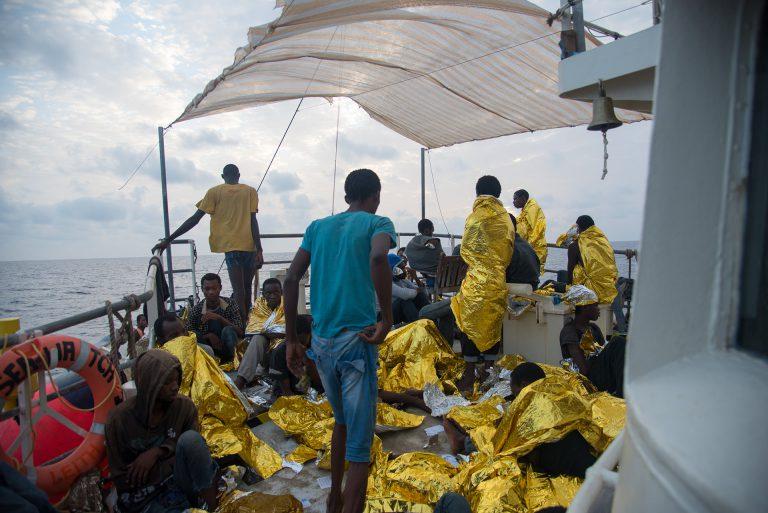Human Rights at Sea comments in the recent article by The Christian Science Monitor about the increasing concern about the actions of the Italian State and European Union in trampling on customary humanitarian principles and international human rights law relating to migrants and refugees returned to Libya, and the well-documented human rights abuses suffered by them at the hands of the EU trained Libyan authorities.

[Permission given to reproduce original article]
Peter Ford SEPTEMBER 8, 2017 ROME—Statistically, it seems clear: Italy has figured out how to allay Europe’s migrant crisis.
The number of migrant arrivals in August was down more than 80 percent from last year, thanks to Rome’s partnership with Libyan authorities. But those sent back to Libya face torture and rape in the detention centers where they are held.
After five difficult years of human pain and political drama, the number of migrants arriving in the country has plummeted in recent weeks. Only 15,365 landed at Italian ports in July and August, a 65 percent drop from the same period last year. August arrivals fell more than 80 percent from the year before.
Driving the downturn is Rome’s effort, with European Union backing, to help the Libyan Coast Guard turn boats back and crack down on search-and-rescue operations by international humanitarian groups. In addition, Italy is trying to cooperate with such authorities as can be found in Libya’s chaotic political landscape to police Africa’s people-smuggling routes.
Under pressure from next year’s elections, in which immigration is an increasingly polarizing issue, government officials are pleased. “Balance is being restored” in the Mediterranean, Foreign Minister Angelino Alfano said recently.
But at what moral price?
Though the flow of people to Europe is being throttled, alarmed nongovernmental organizations warn that the refugees returned to Libya are being condemned to prisons where torture and rape are commonplace. Italy risks being complicit in the abuse in the prisons, the NGOs argue, and is hampering their humanitarian operations by imposing a “code of conduct” on those rescuing migrants at sea. Further, Libya’s nascent Coast Guard has issued threats of violence against – and fired upon – NGO rescue vessels operating in the area, prompting several of the groups to suspend operations.
“We are seeing an erosion of recognized international principles to save lives at sea,” warns David Hammond, head of Human Rights at Sea.
